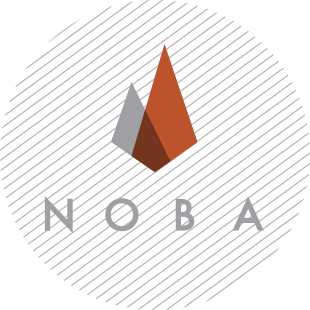OUTREACH OPPORTUNITIES
This is a list of writing, speaking and educational opportunities/activities that researchers can engage in.
Know of a resource you'd like to see added to this list? Submit here.
WRITING & BLOGGING
The Conversation is a collaboration between editors and academics to provide informed news analysis and commentary that’s free to read and republish. As a scientist, you can become an author, pitch an idea, or stay in the loop by signing up to get the daily newsletter.
RealScientists is a rotational twitter account featuring real scientists, science writers, communicators and policy makers talking about their lives and their work. Tweeters from different fields of science and science-related fields. Get a feel for what scientists are actually doing locked away in those labs, and checkout all the things you can do with a science degree. For more information on how to apply for curation, and why you should sign up and tweet for them for a week, see here.
The Bite Sites: Evolutionary in bite-sized pieces.
The goal of these sites is to help undergrads (or anyone interested) to navigate current research literature. Each researcher/ author writes one short summary of a recent paper per month, and one new summary per day is added to the website.
The Bite Sites: Astronomy in bite sized pieces.
The goal of these sites is to help undergrads (or anyone interested) to navigate current research literature. Each researcher/author writes one short summary of a recent paper per month, and one new summary per day is added to the website.
ADDITIONAL RESOURCES:
- Bite Sites: The goal of these sites is to help undergrads (or anyone interested) to navigate current research literature. Each researcher/author writes one short summary of a recent paper per month, and one new summary per day is added to the website.
DIGITAL & MULTI-MEDIA
You can make a video to submit to JoVE, the Journal of Visualized Experiments, is the world's first peer reviewed scientific video journal. Established in 2006, JoVE is devoted to publishing scientific research in a visual format to help researchers overcome two of the biggest challenges facing the scientific research community today; poor reproducibility and the time and labor intensive nature of learning new experimental techniques. All JoVE articles are indexed in subject-relevant indexing sites, including PubMed/MEDLINE, SciFinder and Scopus. Publishing in JoVE allows authors to dynamically present their methods, data analyses and results clearly, accurately, and professionally with the guidance of JoVE's professional videographers and editors.
What you can do: Choreograph a dance to explain your PhD thesis, post the video on Vimeo, and send the link to enter to win $1000 and a free trip to California.
ADDITIONAL RESOURCES:
Coming Soon...
PUBLIC SPEAKING
Speakezee is a platform that connects expert scientists interested in speaking with the public with event organizers.
Cafe Scientique is a set of meetings where scientists take turns presenting on their topics in casual local venues such as cafes, restaurants, bars, and theaters. You can volunteer to present at a Cafe Scientifique meeting in your city.
Science Cafés are events that take place in casual settings such as pubs and coffeehouses, are open to everyone, and feature an engaging conversation with a scientist about a particular topic. Venues range from a local library or coffee house to a neighborhood bar. Even the names of Science Cafés vary, including Science on Tap, Science Pub, Ask a Scientist, and Café Sci.
Nerd Nite is a monthly event held in more than 80 cities during which several researcher volunteers give 18-21 min "fun-yet-informative" presentations on their subjects, while the audience drinks along. You can volunteer to present to interested people from across disciplines in a casual, beer drinking, setting.
ADDITIONAL RESOURCES:
Coming Soon...
K-12 & MENTORSHIP
Covi Education
The goal of I Am A Scientist is to bring STEM Diversity to Classrooms worldwide. This project breaks down common stereotypes about science and scientists by replacing them with stories of real researchers of all backgrounds, personalities, and interests. The “Scientist of the Month” club makes it possible for educators to seamlessly incorporate a wider range of models into their classroom. This project provides free, multimedia toolkits to science classrooms nationwide.
Science Buddies provides free science fair project ideas created by scientists, online advice and guidance from science professionals, and science fair tools. You can partner with Science Buddies and write up science fair project ideas for children based on your research.
Frontiers for Young Minds is a non-profit scientific journal for which young people serve not only as the target audience, but also as critical participants in the review of manuscripts written by expert researchers. They connect 8-15 year olds directly with leading scientists to provide feedback on articles about cutting-edge discoveries. The end result is a journal of freely available scientific articles that are written by leading scientists and shaped for younger audiences by the input of their own peers. To see info for audiences click here.
Create a free, accessible module on your area of expertise within Psychology. Noba is an alternative to traditional textbooks, in which each module is created by experts and is made freely available for use by teachers and students. Browse existing modules here.
The Teen Advocates for Science Communication program (TASC Force) is a youth volunteer opportunity to learn about science and the natural world, engage with the Academy’s scientists and staff, and provide educational activities for the Academy’s annual 1.3 million visitors. The TASC Force welcomes 8th - 12thgrade students from across the San Francisco Bay Area to engage with science in fun and innovative experiences that build confidence, enhance science learning, and improve science communication skills.
ADDITIONAL RESOURCES:
Coming Soon...
MISCELLANEOUS
Coming soon...
















Kindea Labs offers researchers the (paid) service of creating an engaging explanatory video of their research that can then be used to promote the work on the internet.